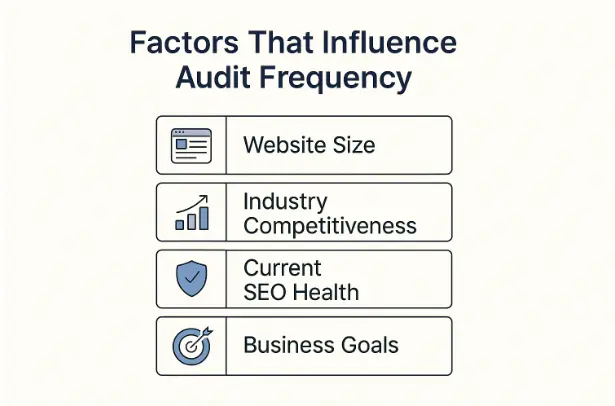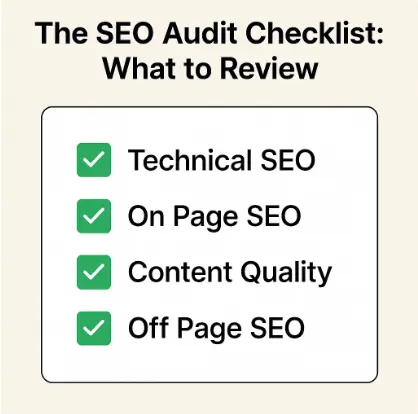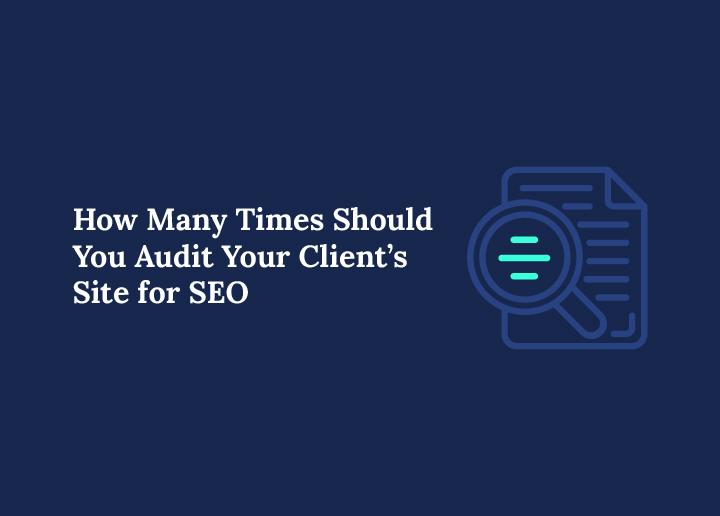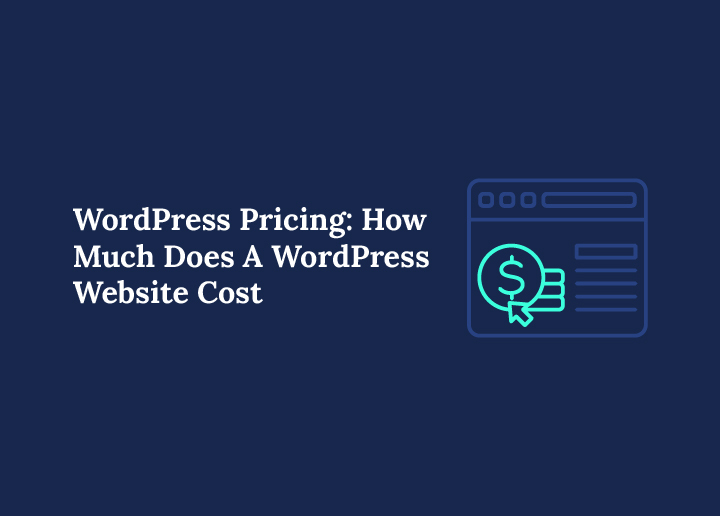Imagine walking into a store with broken signs, missing shelves, and dim lighting. That’s exactly how a poorly optimized website feels to search engines and users. An SEO audit helps ensure your client’s website is not that store.
SEO audits are the digital equivalent of a regular health check up for your website. They uncover issues that might be holding back search engine visibility and ensure every aspect of the site is aligned with your SEO strategy. From slow loading speeds and broken links to weak title tags and outdated content, audits catch the hidden problems before they impact search engine rankings or user experience.
Search engines like Google constantly update their algorithms, which means what worked six months ago might be irrelevant today. If your client’s website is not being audited regularly, it may silently drop in search engine results pages without warning.
Regular SEO audits help monitor your site’s performance, optimize content quality, & boost keyword rankings. They also highlight technical SEO improvements like mobile usability and core web vitals, while keeping track of vital engagement metrics via tools like Google Search Console and Google Analytics.
In this blog, we’ll explore how often you should perform an SEO audit for your clients, why audit frequency matters, and what key areas you should review every time. Whether it’s a quarterly audit or a weekly check up, we’ll break down what agencies need to know to keep their clients ahead in search.
Understanding the SEO Audit Process
An SEO audit is not just a technical scan of a website; it’s a complete evaluation of your client’s online presence through the lens of search engine optimization. It shows how a website performs, spots improvements, and finds new opportunities for better search visibility.
At its core, the audit analyzes a website’s ability to rank for relevant keywords and meet user intent. It goes beyond keyword placement or backlinks. A proper SEO audit reviews site structure, speed, navigation, and content relevance to user searches.
There are three main pillars in any comprehensive audit:
Technical SEO: This includes checking crawlability, mobile usability, page speed, core web vitals, and resolving issues like crawl errors, broken links, or redirect chains.
On-page SEO: This focuses on individual web pages, examining content quality, meta descriptions, title tags, internal links, and keyword usage.
Off-page SEO: This looks at external factors like backlinks, brand mentions, and domain authority that influence a site’s authority and trust.
A good SEO audit also considers user experience signals like engagement metrics and conversion paths. Google’s algorithms increasingly favor websites that align with user behavior, so the audit helps align content with both user journey and search intent.
Ultimately, an SEO audit offers a roadmap. It tells you where your client stands, what needs attention, and which SEO efforts should be prioritized to meet their business goals.
Ready for a Complete SEO Health Check?
Uncover hidden issues and improve search engine rankings with Seahawk’s in-depth SEO Audit Service. Our experts review technical SEO, on page elements, and overall site performance to help you reach more customers.
Factors That Influence Audit Frequency

The ideal schedule for SEO audits depends on a variety of factors. Every website has different goals, structures, and challenges, so understanding these key elements helps you set the right audit frequency for each client.
Website Size and Complexity
Large websites with hundreds or thousands of web pages require more frequent audits. More pages mean more opportunities for broken links, slow page speed, and technical issues that can hurt search rankings. A small local business site with a few service pages may need a comprehensive audit only once or twice a year.
Industry Competition
Highly competitive industries demand more frequent audits. In niches where competitors update their content often or aggressively target the same keywords, quarterly SEO audits or even monthly checks help maintain search engine visibility and protect hard won rankings.
Current SEO Health
If a site already has strong SEO performance and a high site health score, audits can be spaced out slightly. Sites with low scores or ongoing issues like crawl errors or poor mobile usability need more frequent audits until critical problems are fixed.
Content Updates and Site Changes
Websites that publish new content regularly, run frequent campaigns, or add new product pages require ongoing monitoring. Every update can affect site architecture, keyword strategy, and on-page SEO elements like title tags or meta descriptions.
Business Goals and Dependence on Organic Traffic
Businesses that rely heavily on organic traffic for leads or sales must keep their SEO performance at its peak. Even minor dips in keyword rankings or web traffic can impact revenue, so regular SEO audits safeguard those results.
By evaluating these factors, agencies can create an audit schedule tailored to each client’s needs, ensuring their website remains optimized for search engines and user engagement year round.
Recommended Audit Frequency by Business Type
The right SEO audit schedule depends greatly on the type of business and how much activity happens on the website. Different industries and site structures call for different levels of attention to keep search engine visibility strong.
Small and Local Business Websites
Smaller websites with limited pages and steady content updates can thrive with a full SEO audit every six to twelve months. A semi annual review is usually enough to catch technical issues, monitor keyword rankings, and maintain healthy organic traffic.
Blogs and Content Heavy Websites
Websites that publish new posts or resources frequently need a more proactive approach. A quarterly SEO audit works well for blogs and content driven sites because it helps track keyword performance, address broken links, and keep on page SEO elements like meta descriptions and title tags fresh.
Enterprise Websites
Large enterprise websites handle high traffic volumes and complex structures. Monthly audits are recommended to identify technical SEO concerns, monitor internal links, and evaluate page performance. Regular analysis ensures these sites stay competitive in search engine results and maintain strong keyword rankings.
Ecommerce Stores
Online stores with frequent product updates and ongoing promotions benefit from weekly or automated SEO audits. These checks help find crawl errors, slow page speeds, and duplicate content quickly. Consistent monitoring also protects the user experience and supports conversions.
Creating a schedule based on the specific type of website allows agencies to protect search engine rankings and sustain user engagement. A flexible plan ensures that each client receives the level of attention required for optimal SEO performance and long term growth.
Situations When You Should Audit Immediately
Even with a set schedule, there are moments when a website needs an urgent SEO audit. These key situations can have a direct impact on search engine rankings and overall website performance.
After a Major Google Algorithm Update
Whenever Google rolls out a core update, your client’s website may experience changes in keyword rankings or web traffic. An immediate audit helps identify issues and align the SEO strategy with the latest search engine algorithms.
After a Website Redesign or Migration
Launching a new design or moving to a different hosting environment can unintentionally break internal links, alter page SEO elements, or create crawl errors. A post launch audit ensures that the site’s SEO foundation remains solid.
When Rankings or Traffic Drop Suddenly
A sudden dip in organic traffic or keyword rankings is a red flag. Running a quick SEO audit can uncover technical problems such as slow page speed, broken links, or indexing issues.
Before a Major Campaign or Product Launch
Before adding new web pages or starting a marketing campaign, an audit helps verify that existing content, meta descriptions, and site architecture support the upcoming effort.
Responding quickly in these scenarios safeguards search engine visibility and maintains user trust.
The SEO Audit Checklist: What to Review

A complete SEO audit examines every part of a website to ensure that it meets search engine guidelines and provides a smooth user experience. Reviewing these key areas keeps the site’s SEO performance strong and protects search engine rankings.
Technical SEO
Check crawlability, index status, and page speed. Review server response codes, fix crawl errors, and optimize Core Web Vitals to improve site performance. Ensure that HTTPS is enabled and that XML sitemaps and robots.txt files are accurate.
On Page SEO
Evaluate meta titles, meta descriptions, header tags, and keyword usage. Confirm that content quality matches search intent and that internal links connect related pages to support site authority and better navigation.
Content Quality
Look for duplicate content, outdated information, and pages with thin content. Refreshing or expanding content improves relevance and keyword rankings while increasing user engagement.
Mobile Usability
Test how the website performs on different devices. Check layout, readability, and loading speed on mobile to meet Google’s mobile first indexing standards.
User Experience and Engagement Metrics
Analyze bounce rate, average session duration, and conversion paths. Identify pages with high exit rates or slow page speeds that may affect user satisfaction and search visibility.
Off Page Elements
Assess the quantity and quality of inbound links and monitor brand mentions across the web. Strong external links enhance site authority and boost search engine visibility.
Following this audit checklist helps agencies maintain high search engine visibility, enhance user experience, and align the website with current SEO best practices.
The Benefits of Frequent SEO Audits
Regular SEO audits are an essential investment for any website that relies on organic traffic. They ensure your client’s site is always aligned with search engine algorithms, which reduces the risk of sudden ranking drops.
Frequent audits allow you to identify issues like broken links, slow page speeds, or poor mobile usability before they escalate into bigger problems. They also highlight opportunities to improve on page SEO elements such as meta descriptions, title tags, and content quality, which directly support better keyword rankings and stronger search engine visibility.
Beyond technical fixes, consistent audits build trust with clients by showing measurable improvements in website traffic, user engagement, and conversions. In short, they transform SEO audits from a reactive process into a proactive strategy that safeguards long term growth.
How Seahawk Approaches SEO Audits for Clients

At Seahawk we treat SEO audits as the foundation of every successful SEO strategy. Our team conducts a complete review of each client’s website to uncover technical SEO issues, on page improvements, and content opportunities.
We rely on trusted SEO tools like Google Search Console, Google Analytics, and advanced crawlers to ensure every audit is accurate and actionable. The process includes checking site architecture, Core Web Vitals, mobile usability, and engagement metrics, followed by detailed recommendations tailored to the client’s business goals.
For agencies, our white label services make it easy to deliver professional SEO audits under their own brand. This approach helps partners strengthen client relationships while saving time and resources.
With Seahawk, audits are not just about identifying problems, they are about building a clear roadmap for continuous improvement in search engine rankings and website performance.
Affordable SEO Audit Plan
Our pricing structure is designed to fit every business budget. With our standard plan you receive a complete SEO audit along with valuable extras that help improve your online presence.
For just $499 per month, the plan includes:
- A comprehensive SEO audit with detailed reporting
- A professionally written blog optimized for target keywords
- Ongoing recommendations to improve on page SEO and user experience
- Regular monitoring of keyword rankings and website performance
This plan ensures your business gets more than just a one time site audit. It delivers continuous value, actionable insights, and consistent improvements that align with your long term SEO strategy.
Conclusion: Make SEO Audits a Habit, Not a Hurdle
SEO is never a one time effort. Search engines evolve, competitors update their strategies, and user expectations continue to change. Without regular SEO audits, your client’s website risks losing visibility, traffic, and ultimately revenue.
By setting a clear audit frequency based on website size, industry, and business goals, agencies can ensure their clients stay ahead in search engine results. Frequent audits protect against technical issues, uncover content opportunities, and improve user experience, all of which contribute to stronger search rankings and better performance.
At Seahawk we believe every website deserves consistent care and regular checkups. With the right audit schedule, advanced SEO tools, and a proactive mindset, your client’s website will remain competitive and deliver lasting results.
FAQs about SEO Audit
How often should I perform an SEO audit for my website?
Most small business websites benefit from a full SEO audit every six to twelve months. Larger eCommerce or enterprise sites that update content frequently should schedule audits quarterly or even monthly to stay ahead of algorithm changes and maintain strong search rankings.
What is included in a typical SEO audit?
A complete SEO audit reviews technical SEO elements such as crawlability, page speed, and mobile usability, along with on page SEO factors like meta descriptions, title tags, and internal links. It also examines content quality, user experience metrics, and the strength of inbound links to ensure the website meets current search engine standards.
Why are regular SEO audits important for business growth?
Regular audits help detect and fix issues such as broken links, slow page speeds, or duplicate content before they impact search engine rankings. They also reveal opportunities to improve keyword strategy and user engagement, leading to better visibility in search results and steady growth in organic traffic.



